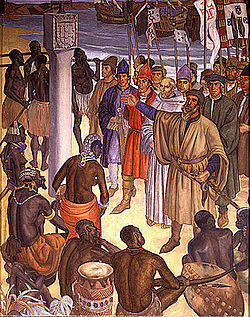

| Years |
|---|
| Millennium |
| 2nd millennium |
| Centuries |
| Decades |
| Years |
| 1484 by topic |
|---|
| Arts and science |
| Leaders |
| Birth and death categories |
| Births – Deaths |
| Establishments and disestablishments categories |
| Establishments – Disestablishments |
| Art and literature |
| 1484 in poetry |
Year 1484 ( MCDLXXXIV ) was a leap year starting on Thursday of the Julian calendar, the 1484th year of the Common Era (CE) and Anno Domini (AD) designations, the 484th year of the 2nd millennium, the 84th year of the 15th century, and the 5th year of the 1480s decade.
